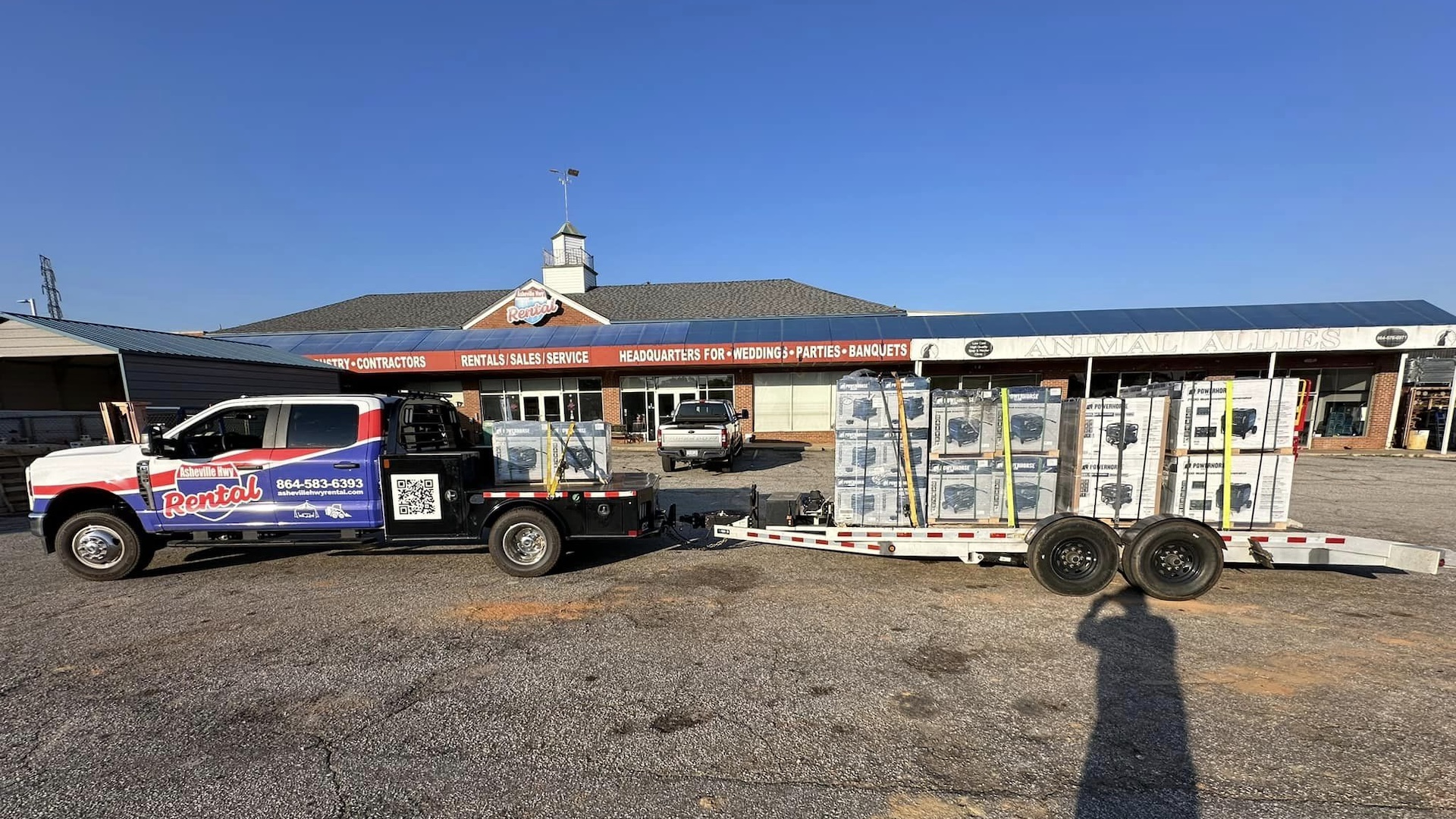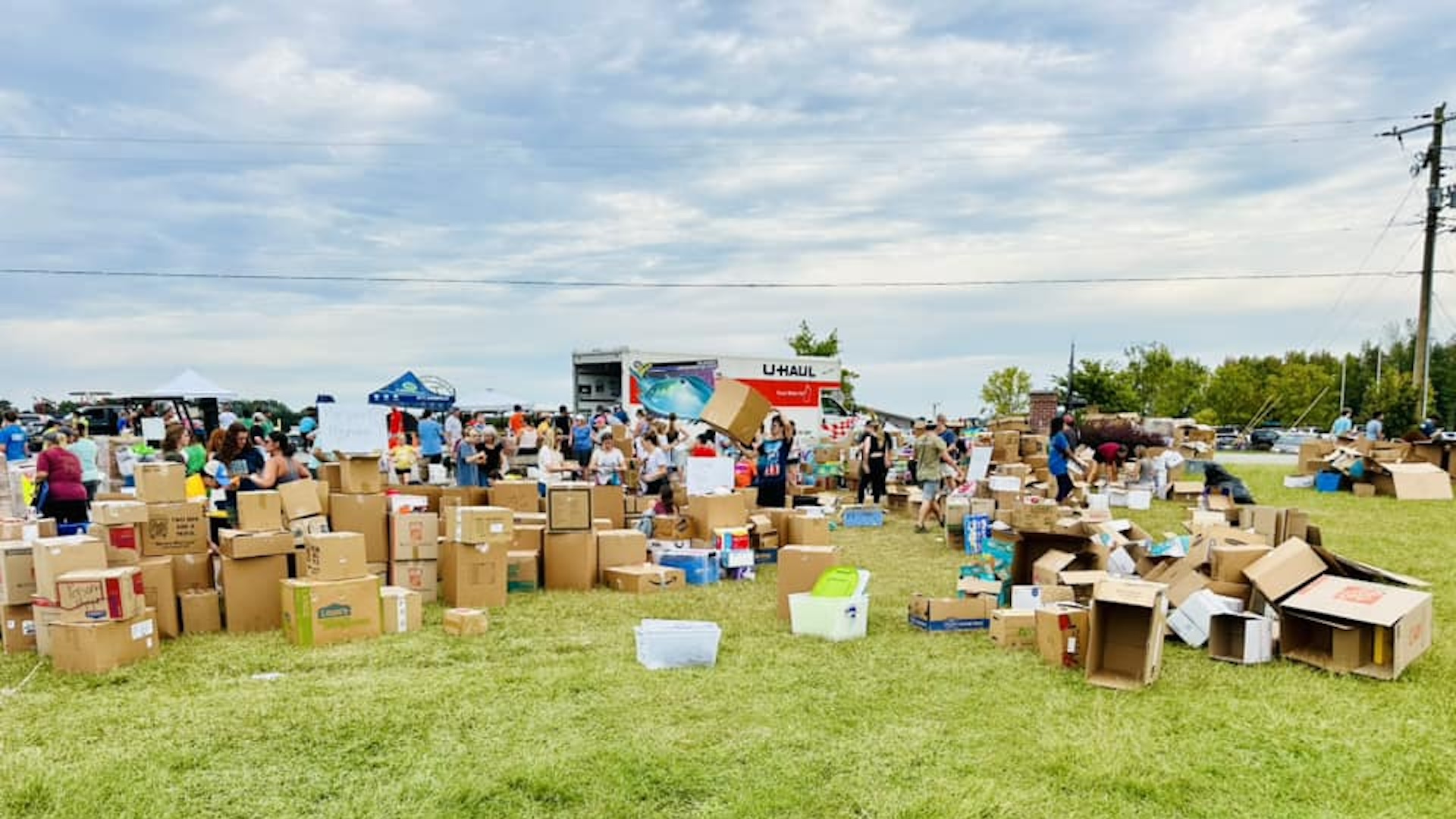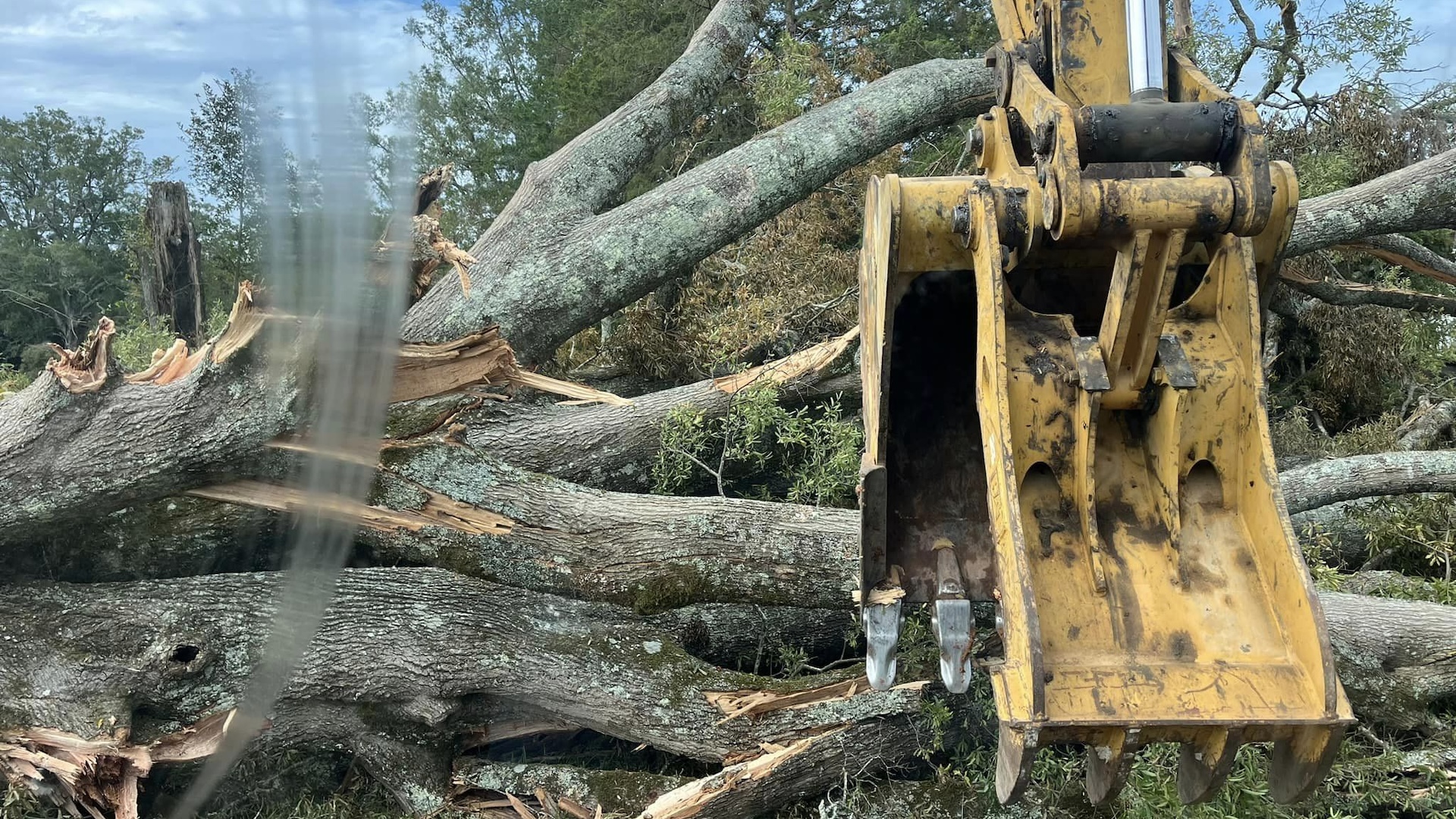In late September and early October, the Southeastern United States was hit with a historical one-two punch in Hurricanes Helene and Milton.
Flooding and high winds destroyed houses and businesses, took out power, washed out roads, and knocked down trees, creating havoc within communities. The two storms caused an estimated $20-34 billion worth of damages and killed an estimated 300 people. The affected areas are often just now getting back to what would’ve been considered “the basics” before the storms, and it’ll likely be years before they’re fully recovered.
So what happens when a hurricane hits your community? We talked to Warren Clayton from Asheville Highway Rental of Spartanburg, South Carolina, about the impact of Hurricane Helene.
Before the Storm
The western Carolinas don’t expect hurricanes – hundreds of miles from a coast, storms tend to weaken enough by the time they arrive that they don’t pose a problem. So even with days of warning, storm preparation for Asheville Highway Rental President Warren Clayton and his family was “we picked up some extra groceries on the way home,”
This led to some after-the-fact scrambling to make things happen, something most rental leaders are pretty familiar with already.

The Effect on Rental Ops
Rebuilding temporary (and then permanent) infrastructure after a storm requires a lot of tools. People need generators to restore power. They need heavy machinery to remove trees from roads and houses. They often need temporary housing.
And a lot of that relief comes from rental businesses.
But how do rental leaders help when they can’t get to their store? How do they conduct business when there’s no electricity and no internet?
When Warren ordered a shipment generators to provide electricity to his community and his team, his supplier also didn’t have power and internet.
“They couldn’t do the paperwork, and because they couldn’t do any of the paperwork, they weren’t able to actually unload and process any of the shipments,” he said. By the time the generators arrived, power had largely been restored or others had found additional options.
While “make sure you order generators in advance” was an expensive lesson (update: he’s found new homes for many of them since our interview was recorded), in 2024 there are solutions for some of the other challenges: Warren was able to get set up with internet via Starlink and AT&T hotspots, which allowed him to process orders and run his business shortly after power was back up and running.
By being proactive, Asheville Highway Rental was able to provide its customers with critical service despite the circumstances.

Working Together to Support Those In Need
When communities near you are suffering, though, getting your business running isn’t the only thing you’re focused on. Warren worked with rental leaders in a variety of industry Facebook groups like The Rental Group and ARA Equipment Rental to coordinate relief efforts.
“It’s very sad and you want to help,” said Warren. “We’re close by, and I had the ability to kind of leverage some of the connections I’ve made over time.”
Warren connected with rental industry contacts and local companies to dispatch medical supplies, water, and essential goods to areas experiencing severe flooding. He worked with a variety of local independent companies to coordinate supplies and deliveries; national chains helped provide mobile command centers.
Businesses in the Facebook groups even offered to help employees find temporary work:

“Everything’s so appreciated. When you pull in with a truck, the volunteers are all clapping and cheering and saying ‘Thank you’. [That part] is pretty cool.” Warren added.

Prepping For The Next Disaster
It’s impossible to completely protect your entire community from a natural disaster. So how can you prepare to be as safe as possible during the storm and to be a beacon of strength afterward? Here are some tips from Warren:
- Early Stockpiling and Equipment Checks: Ensure sufficient supplies – not just of groceries, but of some things you might not normally think of, like fuel and cash, well ahead of a forecasted disaster. Evaluate and reinforce home and business structures against potential high winds and flood risks. Consider ordering recovery equipment in advance so you’ll have it on-hand in the recovery efforts.
- Technological Readiness: Implement backup systems, such as portable payment solutions and hotspot devices, to maintain business operations when primary systems fail. (Check out 29:00 in the video above for more specifics)
- Networking and Collaboration: Establish strong connections with industry peers and local contacts, which can prove invaluable in coordinating effective and widespread relief efforts.
- Community Engagement: You’re likely to already be connected to the people helping rebuilding efforts, if not spearheading them yourself. Make sure you’re staying connected and remember that people will remember the people and businesses who did right by them in their toughest times.
Natural disaster recovery efforts are a testament to the resilience and resourcefulness of both the rental industry and the communities it serves. Helene and Milton dissipated nearly a month ago, but recovery will take years. If you’d like to support ongoing rebuilding efforts, here are some lists of charities working to help in each region: Helene | Milton
